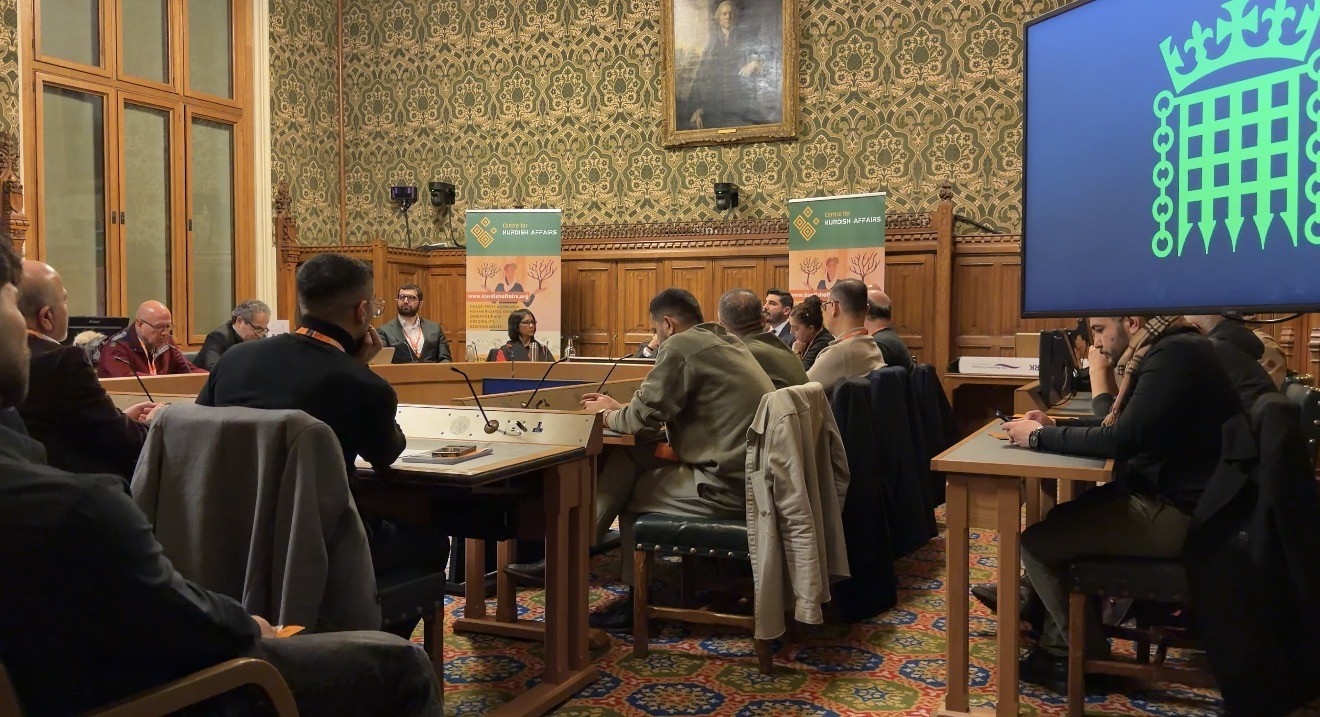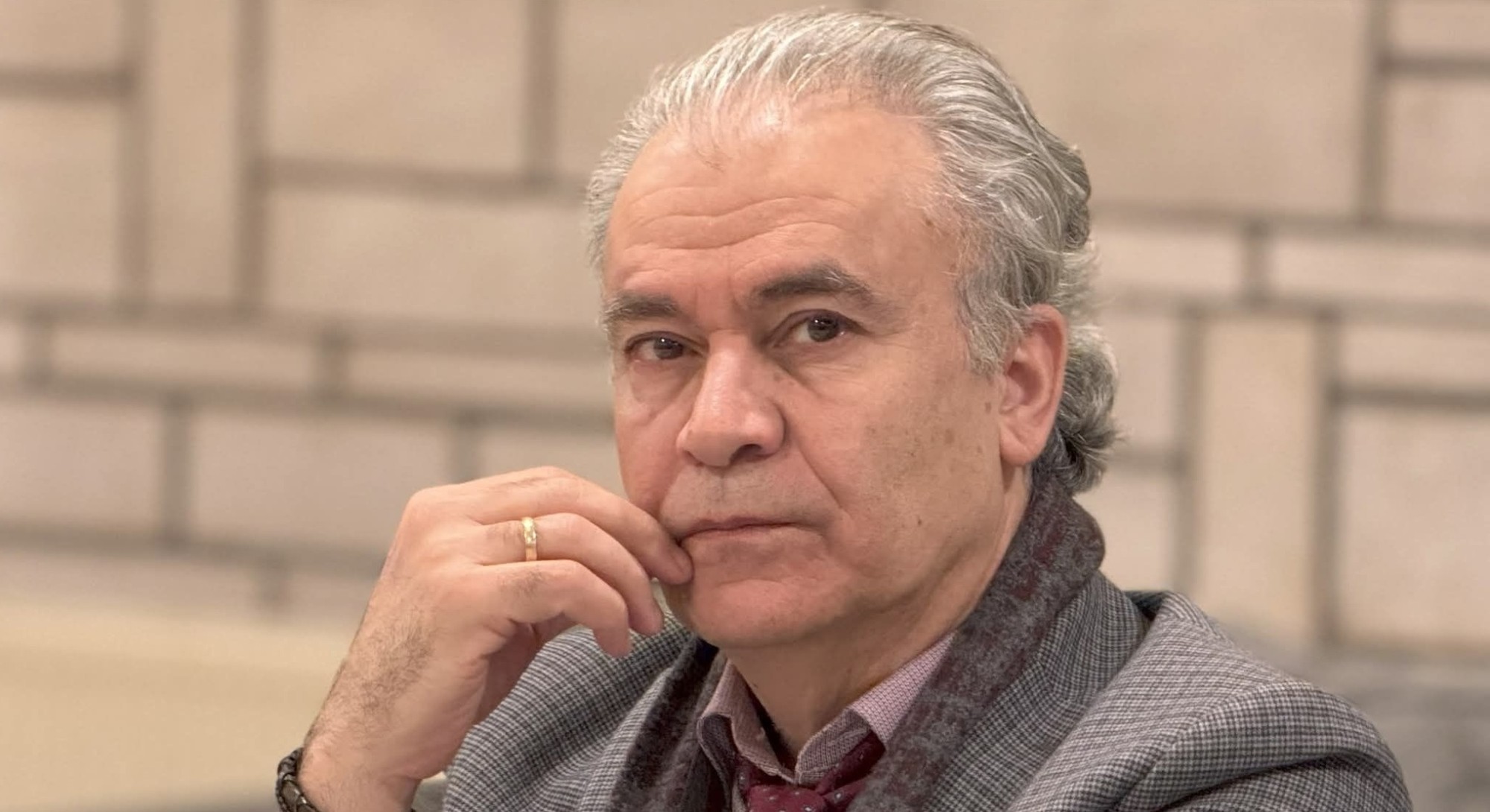On February 10, 2025, the School of International Service at American University (AU) in Washington, D.C., hosted a discussion on the dynamics of U.S.-Kurdistan-Iraq relations under the new U.S. administration. The event, which was hosted by Yerevan Saeed, an AU Professor and Barzani Scholar in Residence, featured a conversation with former Deputy Speaker of the Kurdistan Region Parliament Hemin Hawrami and a group of graduate students, scholars, and journalists.
To begin the discussion, Saeed provided a brief explanation of the relationship between Iraq and the Kurdistan Region, addressing political, economic, and constitutional aspects. “The Kurdistan Region has faced intense pressure on multiple fronts, including its neighboring countries,” he explained. “Kurdistan is grappling with severe economic, financial, political, and social crises. The Iraqi government’s relentless financial, legal, and political attacks continue against the Kurdish people, having cut the federal budget for a decade followed by the holding of oil exportation since March 2023. The Iraqi government has also weaponized the federal court to undermine the constitutional authority of the Kurdistan Region.”
With the second term of the Trump administration – what President Donald Trump dubbed a “golden age” in his inaugural speech – many countries, especially in the Middle East, are wondering how U.S. foreign policy will shift. The withdrawal of U.S. forces in Iraq and Syria is a significant topic, as is how the United States will play a role in resolving the issues between Baghdad and Erbil. So, what can we expect over the next four years in terms of the Trump administration’s policy toward the Kurds?
At the @AU_SIS delivering a seminar on the Future of Kurdistan Region’s Relations with the @realDonaldTrump Administration. Emphasizing the need to empower the partnership, deepening multifaceted relationships for tackling the multilayered challenges we all face in a turbulent… pic.twitter.com/uBDZxUAkZt
— Dr. Hemn Hawrami (@heminhawrami) February 10, 2025
Hawrami shared his expectations and highlighted the importance of his recent meetings at the U.S. Department of State with some congressional and White House advisors. “I was asked by a senior diplomat in Washington what Kurdistan wants from the Trump administration, and my answer was: ‘Make Kurdistan great again.’ That’s exactly what we hope to see from the new administration.”
Hawrami addressed several critical topics, emphasizing that the entire Middle East is experiencing a tectonic shift filled with ambiguities and uncertainties. He explained that the state-centric order that characterized the post-Ottoman era is no longer viable for providing stability, security, and prosperity in the region. Instead, the world is transitioning to a non-state-centric order, which is reshaping events on the ground. He noted that there are approximately 480 armed groups worldwide, governing around 200 million people. In the Middle East, 284 armed groups rule various populations, indicating that states are failing to provide security, stability, governance, and financial support.
Hawrami asserted that the Kurdistan Region has proven to be a key player in the fight against ISIS, with peshmerga forces and Kurdish fighters in Syria playing crucial roles in defeating the terrorist group and ensuring the protection of various minorities in the region. He referenced the new U.S. Secretary of State’s confirmation hearing, which outlined three important concepts for evaluating U.S. foreign policy: security, stability, and prosperity. “We believe that the Kurdistan Region contributes to U.S. security. What makes Kurdistan more stable also makes it more prosperous. Thus, we share many values and interests that we hope will remain a bipartisan issue in Washington.”
Hawrami also emphasized the need for the U.S. to empower Kurdistan as a genuine partner in the Middle East. The Kurdistan Region is strategically important, serving as a voice of moderation amid Iraq’s divisions. He highlighted that out of 350,000 Christians in Iraq, about 320,000 live in the Kurdistan Region, where they feel safer and enjoy freedom of religion. He clarified that the Kurds are not asking for U.S. boots on the ground in Kurdistan Region, but rather for enhanced military support.
The previous “One Iraq” policy has proven to be ineffective. Rather, the idea of “One Iraq with two policies” is a very important distinction for the Kurdistan Region. Hawrami stressed the importance of U.S. engagement, “We need Iraq to re-engage with Washington.” He also called on the Department of State to change its travel advisory for Iraq to two advisory policies, highlighting that the Kurdistan Region is completely different in terms of security, stability, and friendliness. “I don’t think there is anywhere in the entire Middle East that is more pro-American than the Kurdistan Region from the grassroots level.
Follow along as our event Shaping the Future: U.S.-Kurdistan-Iraq Relations Under the New Administration begins with @AU_SIS Prof. @YerevanSaeed and Dr. @heminhawrami. We look forward to an engaging discussion on the future of U.S.-Kurdistan-Iraq relations. pic.twitter.com/7zr2kqKlhE
— Global Kurdish Initiative for Peace (@KurdishSIS) February 10, 2025
“The Kurds are true friends with the United States, and we are proud of this relationship. Even though we have paid the price for this relationship, we are proud to have done so because we believe it is in the best interest of the Kurdish people and the stability of the region.” Hawrami said he hopes to continue these efforts, noting that there are certain issues that will arise, especially concerning the upcoming National Defense Authorization Act and the share of the budget allocated to the peshmergaforces. “We hope there will be an increase in allocations for the peshmerga, as it would be less costly for the United States to empower their true partners in the region, with boots on the ground fighting against terrorism and instability. We look forward to continuous collaboration and need more engagement from the new administration.”
When asked about what Kurdistan can provide in terms of engagement with the United States, Hawrami emphasized the importance of stability in Iraq and adherence to the country’s constitution. He noted that the United States has invested significantly in Iraq and that thousands of U.S. soldiers lost their lives there; however, none have lost their lives in combat in the Kurdistan Region, which remains respectful of U.S. forces and citizens. Hawrami provided a clear example of the Kurdistan Region’s role in maintaining stability in the Region. When Hayat Tahrir al-Sham (HTS) was on its way to Damascus, the potential deployment of the Iraqi army and militia groups to protect Damascus from HTS was discussed in Baghdad, but the Kurdistan Region had a crucial role in preventing this strategic mistake.
Lastly, Hawrami addressed concerns regarding the withdrawal of U.S. forces from Iraq and Syria, arguing that such a move could exacerbate instability. He reiterated that Iraq was not ready to fill the security gap left by the withdrawal of U.S. forces in 2011, which led to the rise of ISIS. He cautioned that the withdrawal of U.S. forces without a viable alternative could create more significant problems in Iraq and Syria.

